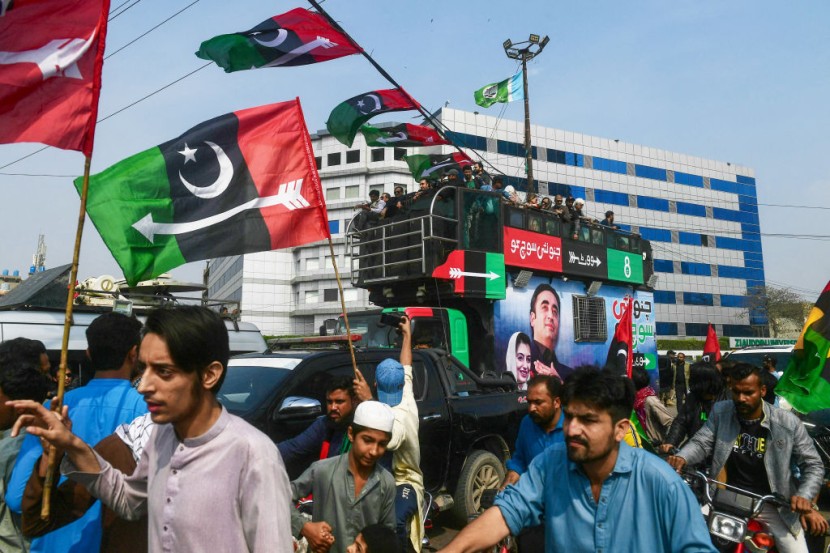The looming parliamentary elections in Pakistan this week are marked by widespread apprehension.

Many wonder whether the upcoming balloting holds the potential to disrupt the prevailing cycle of political discord, an unyielding economic crisis, and a resurgence of militancy in the nation.
Forty-four political parties will compete on Thursday for a share of the 266 seats in the National Assembly, or the lower house of parliament, with an additional 70 seats reserved for women and minorities, reported The Associated Press.
After the election, the new parliament will choose the country's next prime minister. If no party wins an outright majority, the one with the most share of assembly seats can form a coalition government.
Nawaz Sharif, a three-time former prime minister who has returned to the country and absolved of past convictions, seems to be a top contender for the post.
The AP revealed Sharif returned last October after four years of self-imposed exile in London to avoid serving prison sentences. Within weeks of his return, his sentences were thrown out and his convictions were overturned.
Who Is Sharif Up Against?
His archrival, former Prime Minister Imran Khan, a cricket hero turned Islamist politician, was ousted in April 2022 and is currently behind bars and banned from contesting the vote.
Despite Khan's significant following, many feel the result has already been decided because of how quickly Khan fell and how easily Sharif is making a comeback.
For most of Pakistan's existence the military has either led the country directly or exerted enormous influence on civilian governments. According to The New York Times, when Mr. Khan was removed after a dispute over the military's leadership, he accused the generals of orchestrating the move. At rallies attended by thousands of supporters, Mr. Khan railed against those generals by name - direct criticism that was once unheard of in a country where people only ever complained in code, referring to the military as "the establishment."
When Mr. Khan was arrested in May, hundreds of protesters attacked military installations in once unimaginable scenes. In the months since the military has sought to reassert control and make clear that its hand in politics will be lasting, analysts told NYT.
Government officials have continually denied any unlawful meddling in the elections.
"It appears the party looks at their defeat looming large and is using the victim card to cover up the criminal actions of some of their leaders," said Murtaza Solangi, the interim information minister. "The law has taken its course," he added.
According to an article by Foreign Policy, Khan remains the most popular politician in Pakistan. If the military establishment secures an election outcome in its' favor, the next coalition government will still struggle to maintain its power across Pakistan's political institutions. Pakistan urgently needs consensus among its stakeholders on creating a robust democracy; the easiest way to reach it would be through free and fair elections without military interference.
Until politicians abandon their self-serving agendas, the military establishment will maintain its sway over the decisions of any governing body in Pakistan.
© 2025 HNGN, All rights reserved. Do not reproduce without permission.









